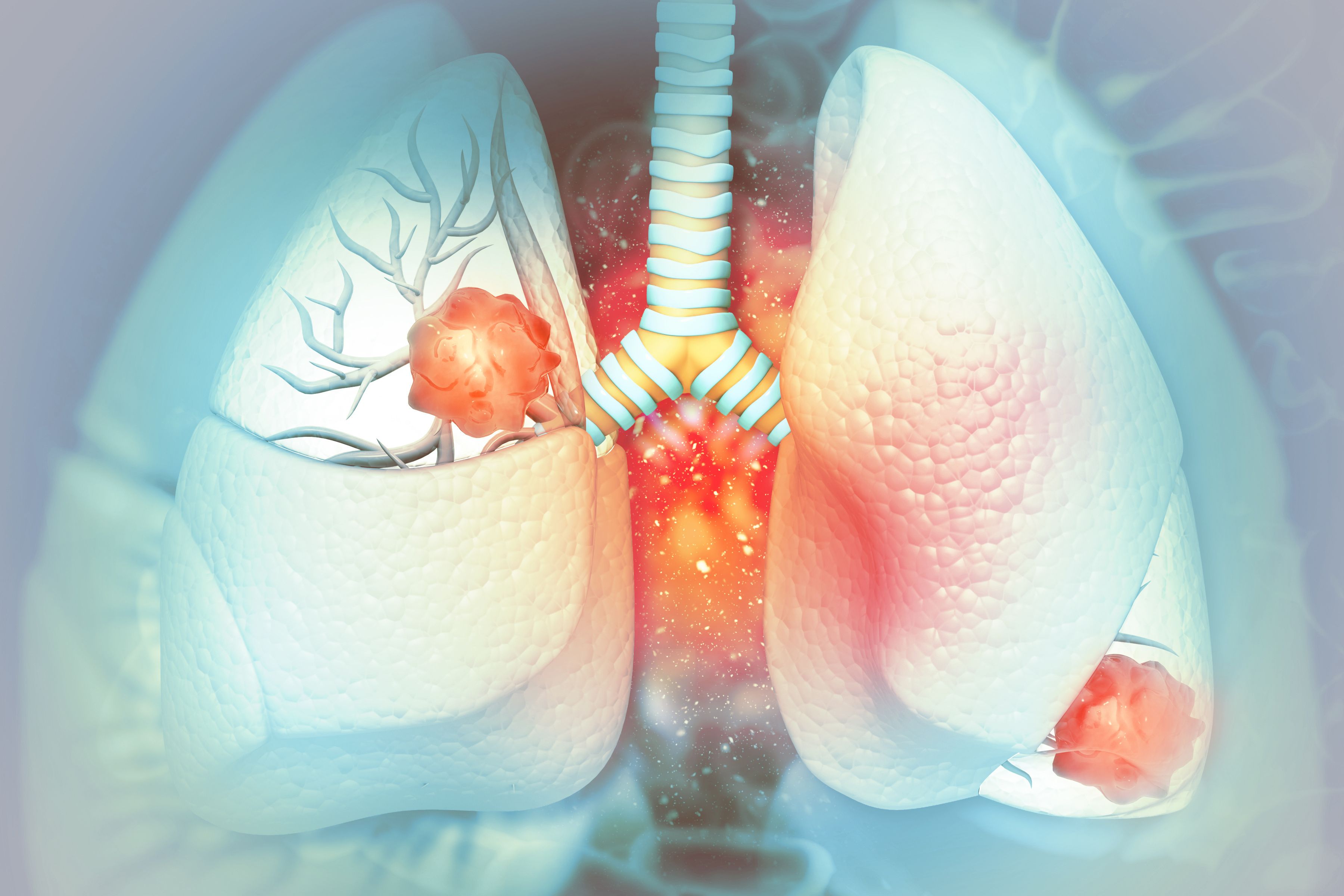Nivolumab/Chemotherapy Regimen Shows EFS Benefits in NSCLC
Neoadjuvant nivolumab and chemotherapy followed by surgery and adjuvant nivolumab demonstrated improvements in event-free survival, pathologic complete response, and major pathologic response in non–small cell lung cancer.
Lung Cancer: ©Crystal Light - stock.adobe.com

A perioperative regimen of neoadjuvant nivolumab (Opdivo) and chemotherapy followed by surgery and adjuvant nivolumab for the treatment of patients with non–small cell lung cancer (NSCLC) demonstrated improvements in the primary end point of event-free survival (EFS) compared with neoadjuvant chemotherapy and placebo followed by surgery and adjuvant placebo, according to findings from the CheckMate -77T trial (NCT04025879).1
The risk of disease recurrence, progression, or death was reduced by 42% in the nivolumab arm (hazard ratio, 0.58; 97.36% CI, 0.42-0.81; P =.00025). The nivolumab arm also demonstrated improvements to the study’s secondary end points of pathologic complete response (pCR), and major pathologic response (MPR). pCR was 25.3% in the nivolumab arm compared with 4.7% in the placebo arm, and MPR was 35.4% in the nivolumab arm compared with 12.1% in the placebo arm.
Definitive surgery rates were 78% in the nivolumab arm compared with 77% in the placebo arm, and complete resection was achieved in 89% vs 90% of patients, respectively. Data regarding overall survival is still immature. The safety profile of the nivolumab/chemotherapy regimen was consistent with previously reported studies, and no new safety signals were observed.1
“It is a major step forward for our patients with lung cancer. We're extremely encouraged to see these results. Going forward, we have so much research to do to understand who the patients are who benefit the most from this approach, and who the patients are who have to receive different type of therapies,” Tina Cascone, MD, PhD, associate professor of Thoracic/Head and Neck Medical Oncology, The University of Texas MD Anderson Cancer Center, told Targeted OncologyTM.
A total of 452 patients are enrolled in the phase 3, randomized, double-blind CheckMate-77T trial. The trial has an estimated completion date of September 2024.
To be eligible to participate, patients must have stage IIIA-IIIB NSCLC, no brain metastasis, treatment-naïve disease, and an ECOG performance status ≤ 1. Patients are ineligible to participate if they have active or suspected autoimmune disease; a positive test for hepatitis B, hepatitis C, or HIV; received previous anti-cancer treatment; or previous treatment with any anti-PD-1, anti-PD-L1, anti-PD-L2, or anti-CTLA-4 antibody, or any other antibody or drug specifically targeting T-cell co-stimulation or checkpoint pathways.2
Further data will be presented at a presidential symposium at the European Society of Medical Oncology Congress on October 21, 2023.1
“The results from the CheckMate -77T study are promising for physicians, patients, and their families alike. I look forward to seeing how the data from this ongoing trial continues to unfold, especially the secondary endpoint of overall survival,” said Cascone, in a press release.1